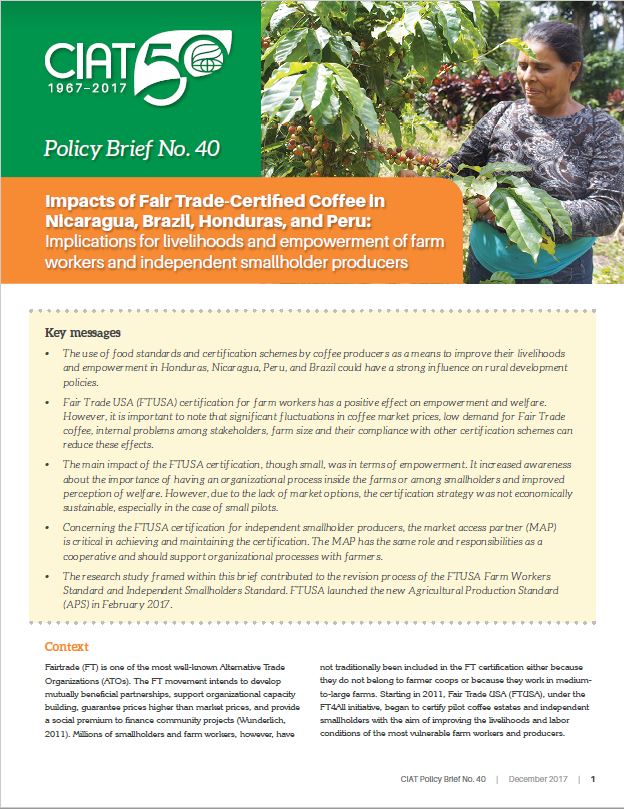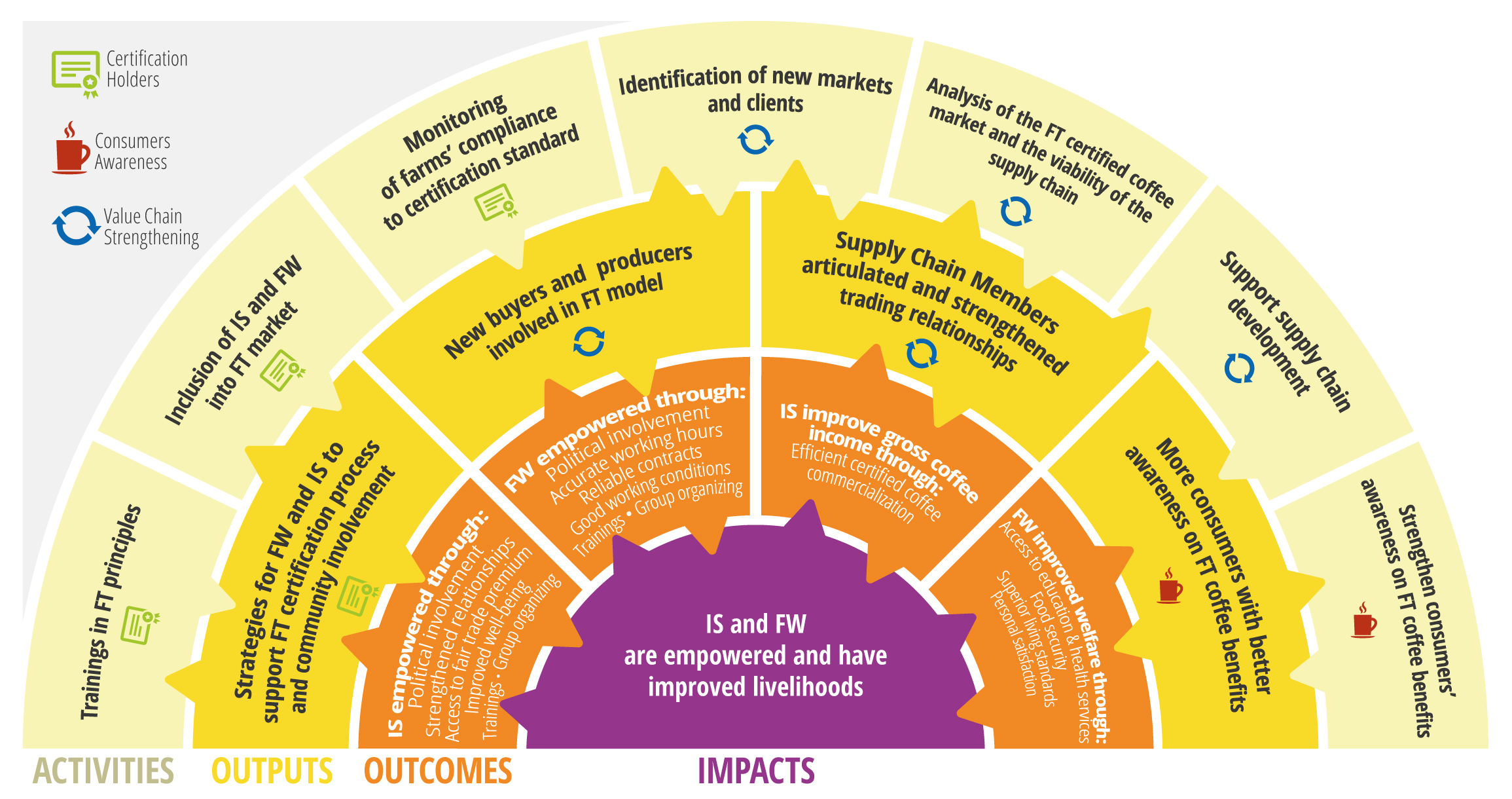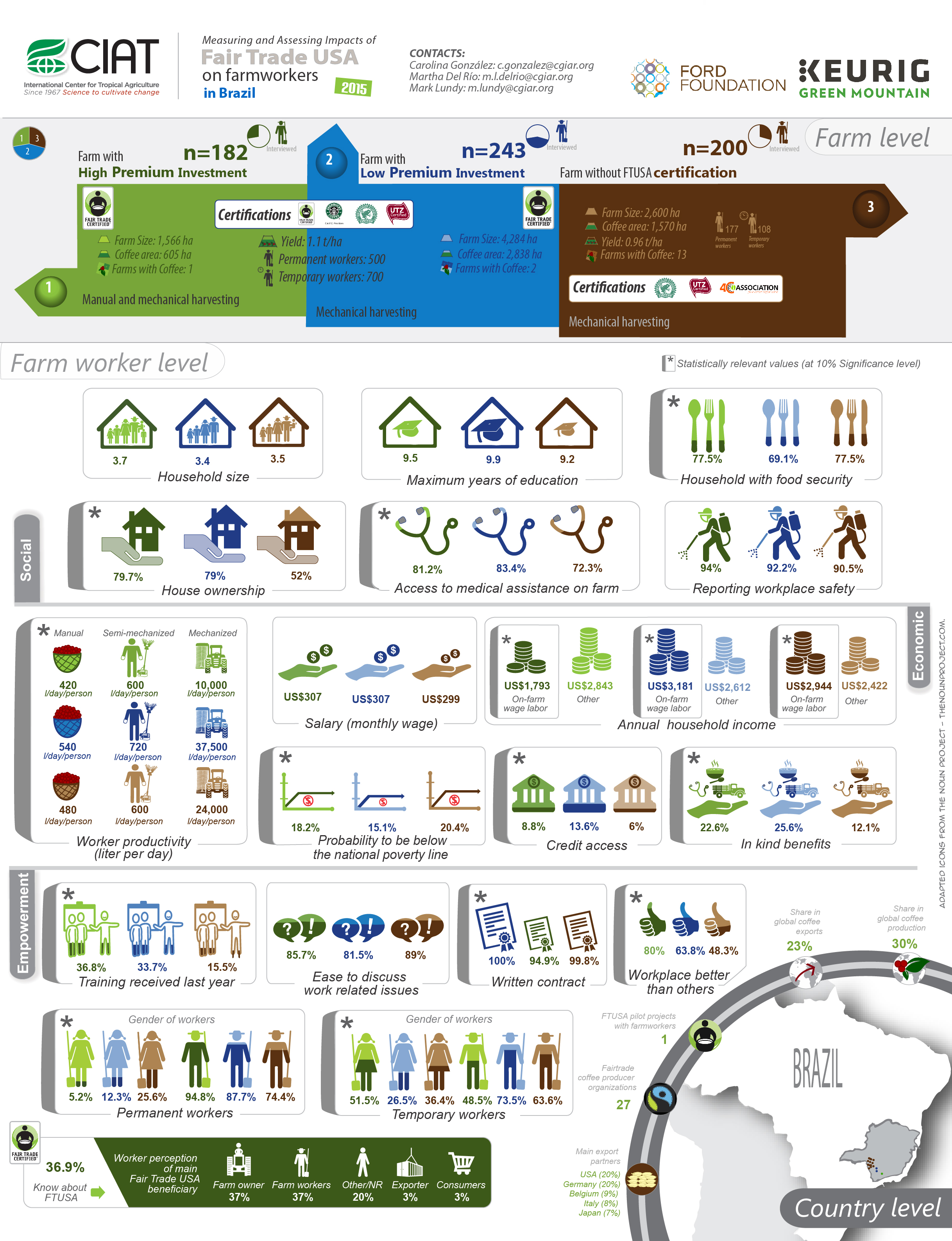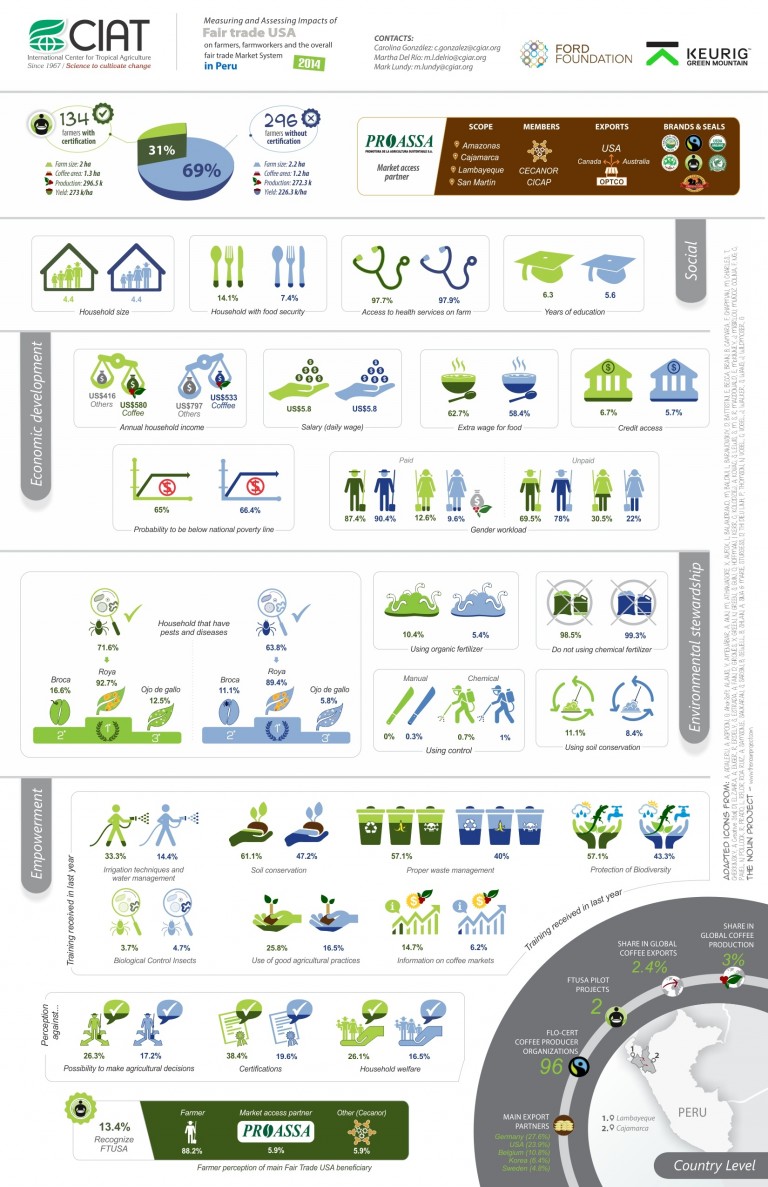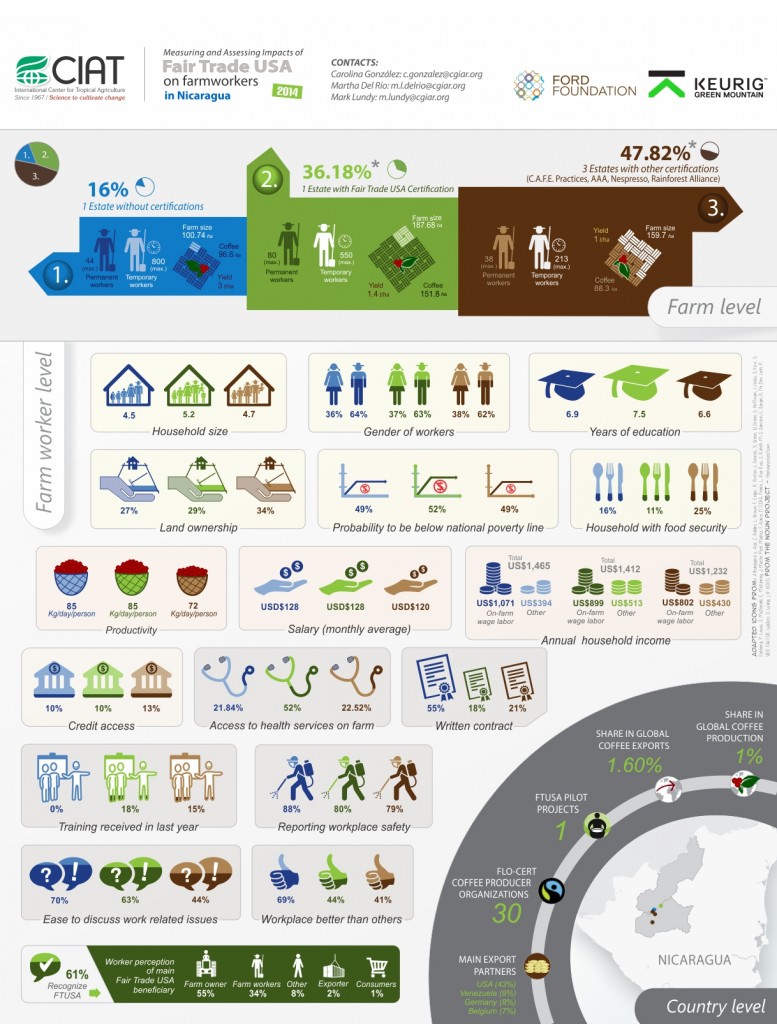Cupping Fair Trade Coffee Impact
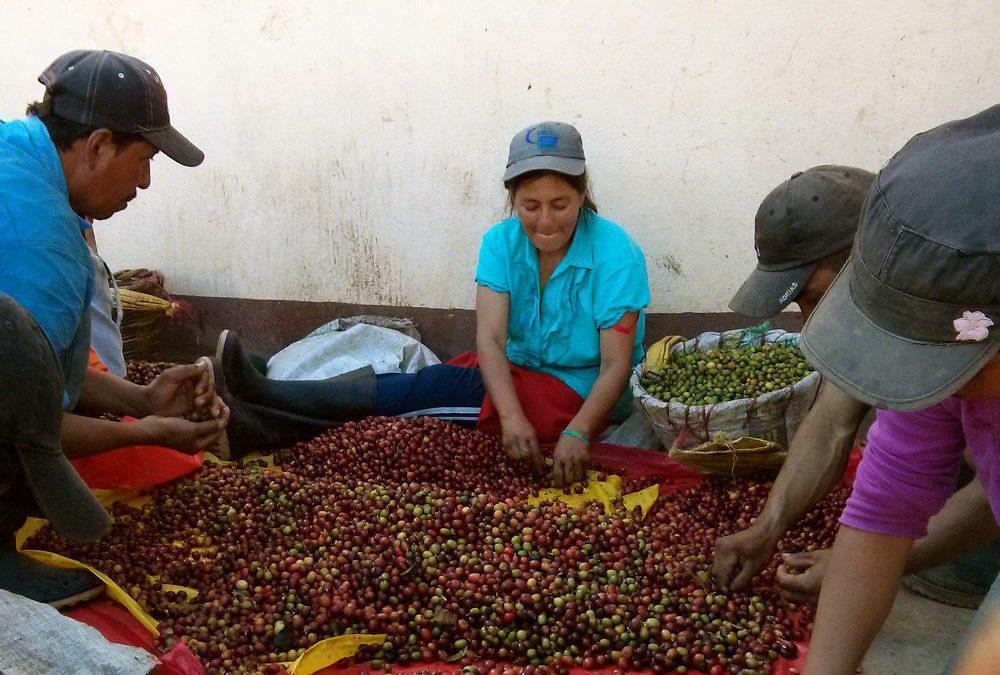
After 3 years of the impact evaluation project “Measuring and assessing impacts of Fair Trade for All on farmers, farmworkers, and the overall Fair Trade market system” supported by the Ford Foundation and Keurig Green Mountain, we have prepared a policy brief highlighting our findings and recommendations regarding the effect of the Fair Trade Certified label in the livelihoods and empowerment of coffee farm workers (FW) in large farms, and independent smallholder producers (IS).
by Natalia Gutiérrez & Martha Del Río| Feb 5, 2018
These recommendations could be useful to coffee buyers, third-party certifiers, producers, and other coffee stakeholders.
On the road to empower and improve the livelihoods of farm workers and independent smallholder producers
The policy brief summarizes the theory of change (ToC) of Fair Trade for all (FT4All) pilots adapted by CIAT, as shown below. Based on this ToC, we conducted an impact assessment to analyze its effectiveness on the pilots.
The impact assessment conducted in Nicaragua, Brazil, Honduras, and Peru had two objectives at two different levels.
- Objective at a micro level: Assess the impact in terms of economic and social development, and environmental stewardship on smallscale independent coffee producers and estate workers of FT4All pilots.
- Objective at a meso level: Analyze organizational empowerment processes and changes over time on Fair Trade-certified independent small-scale coffee producers and farm workers.
The research study was carried out from:

Principles: Fair Trade Standards

Empowerment

Economic development

Social responsibility
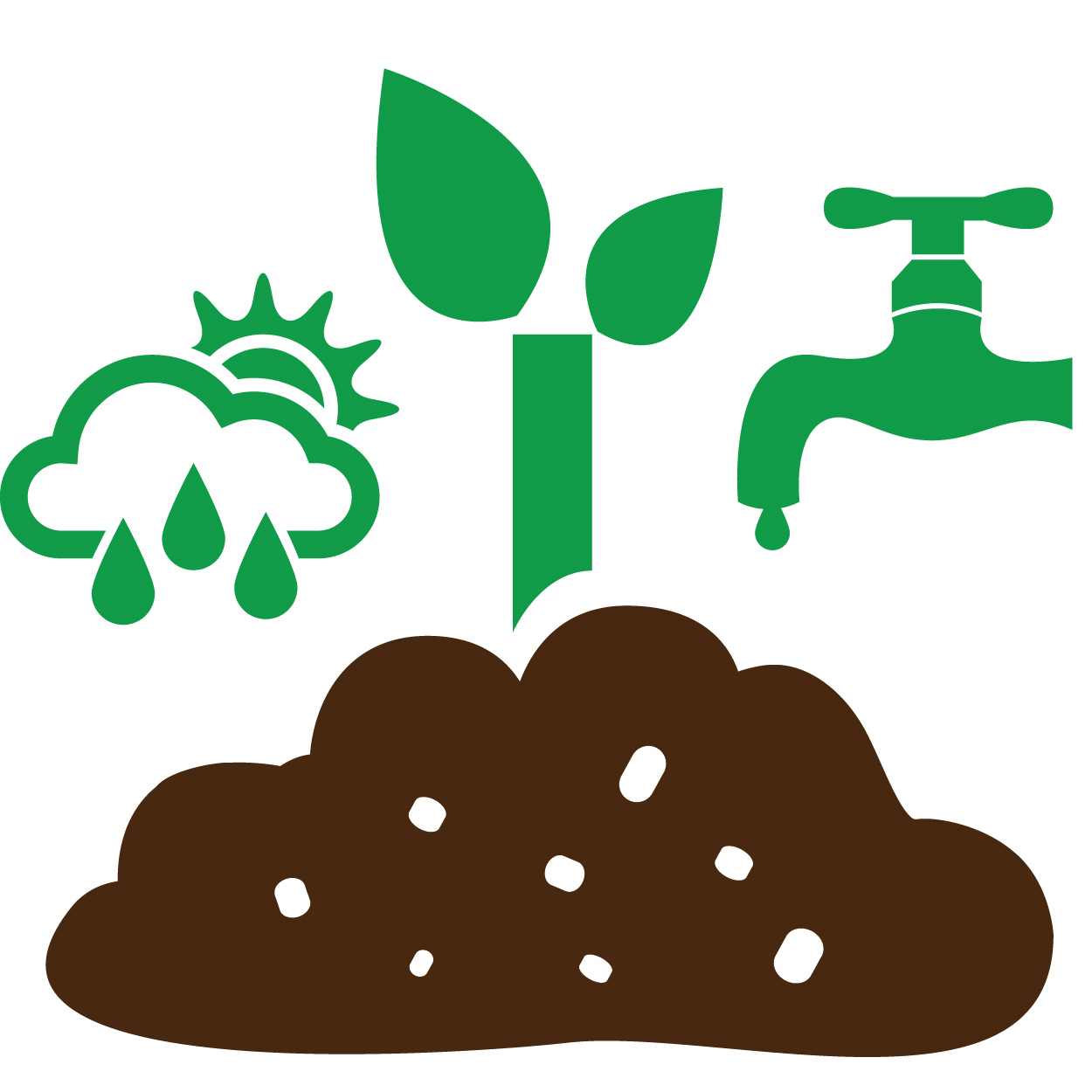
Environmental stewardship
We applied a mixed-method research approach that integrates quantitative and qualitative data, using:
Focus-groups
Semi-structured interviews
Surveys
Research highlights
- Fair Trade Certified for farm workers has a positive effect on empowerment and welfare. However, it is important to note that significant fluctuations in coffee market prices, low demand for Fair Trade coffee, internal problems among stakeholders, farm size and their compliance with other certification schemes can reduce these effects.
- FTUSA certification should foster the engagement of temporary farm workers to enhance their empowerment. So far, this group has remained invisible throughout the certification process and in the Premium benefits.
- The main impact of the FTUSA certification, though small, was in terms of empowerment. It increased awareness about the importance of having an organizational process inside the farms or among smallholders and improved perception of welfare. However, due to the lack of market options, the certification strategy was not economically sustainable, especially in the case of small pilots.
- Concerning the FTUSA certification for independent smallholder producers, the market access partner (MAP) is critical in achieving and maintaining the certification. The MAP has the same role and responsibilities as a cooperative and should support organizational processes with farmers.
- Farmers need to secure better prices for their products, as they are not always guaranteed by access to fair trade markets, since adverse weather conditions or the presence of pests might hinder full compliance with quality standards. Furthermore, due to uncertainties involved in coffee production and marketing, some coffee growers are not relying solely on certified crops to improve household income, but are now actively investing in other opportunities. Therefore, to improve smallholder farmers’ livelihoods, FTUSA should be more active in finding long-term buyers and propose, promote, and help introduce risk management and risk transfer tools to address loss and damage associated with climate change.
Check our previous post in which we shared a summary of our findings in Brazil and Nicaragua and some lessons learned. And download our innovative infographics:
This research was supported by



